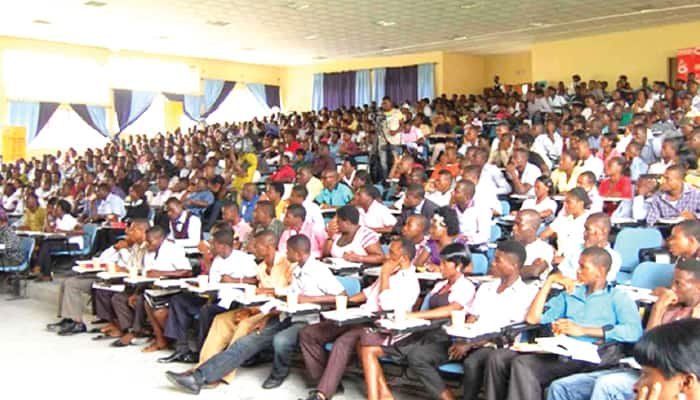Education is undeniably the foundation upon which nations build their future. Yet, in Nigeria, this building block is under siege. The future of our nation, embodied by our undergraduates, faces an educational system riddled with challenges that threaten our collective progress.
Historically, from Colleges of Education to Universities, these establishments have been at the forefront of shaping our society. However, recent times have seen them grappling with issues ranging from outdated curricula to administrative inefficiencies.
A pressing concern remains inadequate funding. UNESCO recommends that developing nations dedicate 15-20% of their annual budget to education. Disconcertingly, Nigeria has lagged behind, with the highest allocation peaking at a mere 8.8%. Such dismal funding has led to universities like Ahmadu Bello University facing prolonged power outages, unable to settle their electricity bills.
But the challenges don’t stop at funding, the bane of corruption has also seeped into our institutions. Scandals, such as the case involving former ABU vice-chancellor Ibrahim Garba, underscore the magnitude of the issue.
Not only that, private institutions which could complement government’s education-for-all efforts struggle with bureaucratic burden, including multi-facetted taxes, that makes private education more expensive than necessary.
A glance at our institutions’ infrastructure paints a grim picture. Overcrowded lecture halls and outdated facilities have become all too common. The ramifications are clear: students often find themselves in environments unconducive to learning, diminishing the quality of their education.
The result of substandard education is production of “educated illiterate” graduates with certificates but without skills or directions needed to survive in the 21st century labour market. So, the specter of unemployment looms large. Stories of graduates publicly destroying their certificates and those returning the same to their alma mater out of frustration of not securing a job, highlight the tragic disconnect between our educational system and the job market.
But all hope is not lost. Solutions are within our grasp.
There has been a pressing demand to revise and update school programs to better reflect the demands of the 21st century. And as we have seen in the telecommunication sector, where government-led initiatives falter, private institutions offer a beacon of hope.
Encouraging private education is pivotal. These institutions often provide more agile, adaptive, and efficient academic environments. They can swiftly modify curricula to align with global trends and job market demands.
Yet, for private education to truly flourish, the government needs to reduce bureaucratic obstacles that hinder their growth and operation. Over-regulation and complex licensing processes dissuade many potential private educators. By streamlining these processes, we can spur the establishment of more private institutions, leading to healthy competition, increased quality, and better outcomes for students.
When we provide an environment for private institutions to flourish, they also act as models for public ones, showcasing best practices. No doubt, this symbiotic relationship can elevate the entire educational sector.
While the challenges facing the Nigerian education system are significant, they are not insurmountable. By promoting and easing the way for private institutions, we can instigate a transformative shift in our educational landscape, ensuring a brighter future for our students and the nation at large.













